SEO marketing tools make your life easier. The best of them make brainstorming, executing, analyzing and reporting not only more productive but more satisfying.
And we get it.
Marketers’ jobs can be ill-defined, yet executives still expect ROI on even the most nebulous of content marketing programs.
So how do you, a marketing pro with benchmarks to hit, maximize your time and generate results?
Load up on as many tools (some are free!) as you can, just as long as you don’t lose that human touch that algorithms and bots have yet to recreate.
Here is a quick list to make your search engine optimization targeted, relevant and measurable.
Content Ideation | Content Writing | Keyword Research | Keyword Analysis | Link Building | Organic Rank Tracking | Website Audit
Content ideation
SEO and content production go hand in hand. But before you can hit the ground running with actionable assets to create, you need awesome topics that serve audience intent and are worthwhile to pursue.
Ideation is a highly variable process. Some marketers brainstorm best alone; others love the casual, marathon sessions of throwing out any idea to a crowd of colleagues. The key, either way, is crafting ideas that stick.
Free: Answer the Public is 100 percent free and relies on search queries that actual humans have typed into search engines. Insert your keyword or keyphrase and Answer the Public populates an extensive list of related topic ideas for you to use.
Its strong suit is its data visualization which organizes all your possibilities into digestible formats.
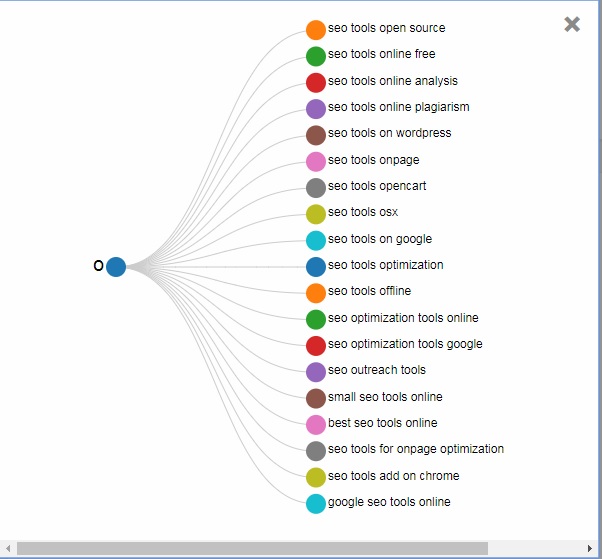
Bonus Free: Google Analytics and Search Console give you the ability to glean insights into the types of content that perform best with your audience. You can segment visitor behavior by demographics and evaluate blog page views, engagement metrics and conversion behavior. Save time on content ideation and eliminate guesswork by truly understanding your site visitors.
Paid: BuzzSumo comes with a 14-day free trial with all of its plans, the cheapest of which is $79/month and has limited features. The largest plan is customized to enterprise-level businesses at more than $499/month and includes alerts, unlimited searches, five years of data and analytics tools that provide popular search and social results.
Type in a keyword or phrase and BuzzSumo shows you similar posts that received the most engagement on social as well as the influencers who shared them. Piggybacking off these themes can allow you to conceptualize topics of your own that have a better chance of gaining traction on social.
Alternate: Google’s “Searches related to” at bottom of SERPs – free SEO tool if there ever was one.
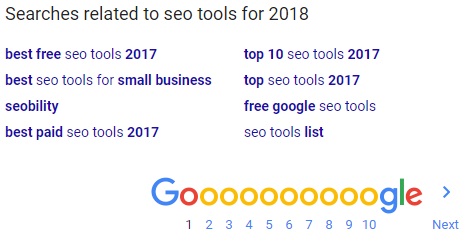
Content writing
With topics in hand, SEO content writing begins.
But you still need a way to keep your writing targeted, thorough and clean. Several rounds of editing can do the trick, though a few tools gets the job done more quickly.
Free: Hemingway App assesses the concision and clarity of your writing. Writing for SEO means being clear, intentional and effective in your wordsmithing without sounding stuffy or relying on archaic keyword practices.
Paid: MarketMuse specializes in evaluating the content depth of competitors that rank for a specific keyword. The tool will tell you exactly what topics are being discussed in the top pieces of content, allowing you to create “content briefs” which act as outlines for comprehensively writing a given topic. Powered by artificial intelligence, the tool allows you to optimize your writing for greater search potential. For $500/month you can get a single license and create your own content briefs.
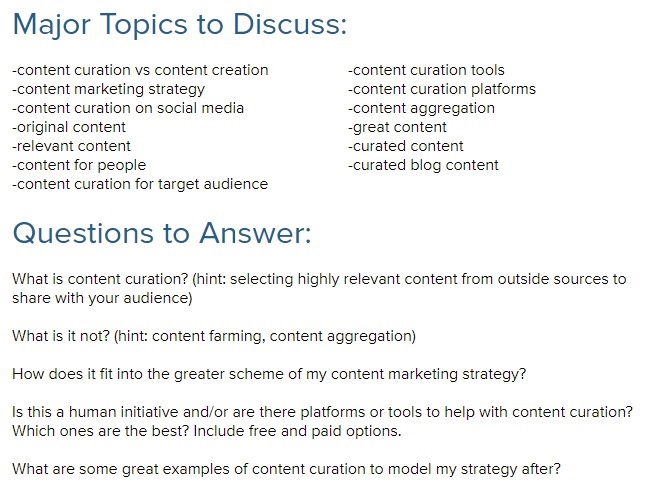
Alternate: Ahrefs shows “Content Gaps” on your site – pages that could rank higher by including specific topics/phrases.
Keyword research
In the age of RankBrain, keyword research is not an isolated exercise. It should be completed early and with defined goals in mind. Utilizing surface-level, high-competition keywords in each piece of content is old news: You need real ranking opportunity out of each keyword you use and should understand the searcher intent behind each one.
To do so, mine for long-tail keywords with high commercial intent to show actual ROI in your content.
Free: Moz Keyword Explorer provides you with 20 free queries a month and also a 30-day free trial. You can search by keyword, web page, subdomain or root domain to determine where your actual keyword opportunities lie and how likely it is for you to rank for those queries. Additional segmentation and filtering tools allow you to pinpoint specific keyword targets you can turn into SEO gold. Further, Moz boasts one of the only tools that reports on organic ranking difficulty (how strong competitors are that currently rank for the keywords in question).

Paid: SEMrush performs many of the same functions as Moz Keyword Explorer with three pricing tiers: $99.95, $199.95 and $399.95 monthly. It also accomplishes all things on-page SEO including position tracking, competitive intelligence and organic traffic ideation. With more than 800 million keywords in its database, SEMrush is a go-to for more sophisticated SEO campaigns.
Alternate: Google Keyword Planner doesn’t have tracking and organic ranking features but does show keyword suggestions and search volume. GKP serves as an excellent starting point for generating keyword ideas.
Keyword analysis
Upfront keyword research is, of course, vital to SEO and content, but backend analysis of those keywords and the content that leverages them is equally important. SEO analysis tools empower you to measure on-page metrics, tweak future keyword targets and re-invest in SEO strategies you know will work.
Free: Google Analytics and Search Console are square one. They’re comprehensive web analytics at your fingertips. GA collects and reports site visitor data, pathways toward conversion and the day-to-day metrics needed to measure SEO success.
Paid: Searchmetrics has an SEO suite that includes content optimization, keyword data measurements and insight into organic visibility, plus much more. Its Essentials package is $69/month, and the Suite is priced to spec by phone call only.
Alternate: Ahrefs has the largest database of keywords on the market and comes with automated daily rank tracking.
Link building
Quality links to your site are commonly cited as the most important ranking factor in search. That is, if you provide great content, and reputable sources link to your web pages, you send strong signals to search algorithms proving your domain is an authority. Obtaining link equity through effective link-building campaigns can be a time-intensive, manual process few sink enough resources into.
Free: Majestic has a valuable free version of its service that spotlights all of the sources linking back to your site. You can also compare these links to those of your competitors. Armed with this information, you can identify additional link-building opportunities based on referring domains.
Paid: BuzzStream has free trials for its four plans, but users then must pay $24-$999+/month for complete service. The cheapest option provides quick wins such as link-monitoring capabilities, campaign management and even a browser extension for ease of use. Better yet, BuzzStream comes with the contact info of link opportunities and email templates with which to reach out to them.
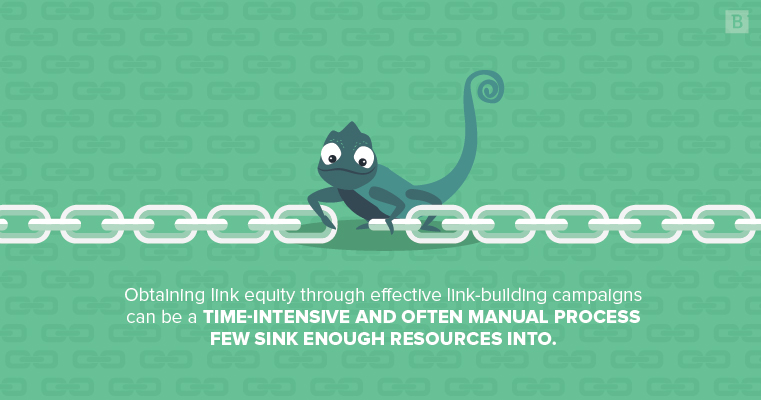
Alternate: SEMrush and Moz offer link building and competitor link research for free. Search Console will give you a simple overview of your inbound link profile, as will Open Site Explorer.
Organic rank tracking
Though many analysis tools provide rank-checking as part of their normal offering, sometimes this feature can get lost in the shuffle of larger digital suites, just from an optics standpoint. That’s why a dedicated, barebones rank-tracking tool can be beneficial.
Search engine rank checkers are great for spot-checking where your website stands at any given moment at a keyword-specific level. This type of visibility puts you in charge of your SEO performance and enables you to home in on ranking opportunities that are within your reach.
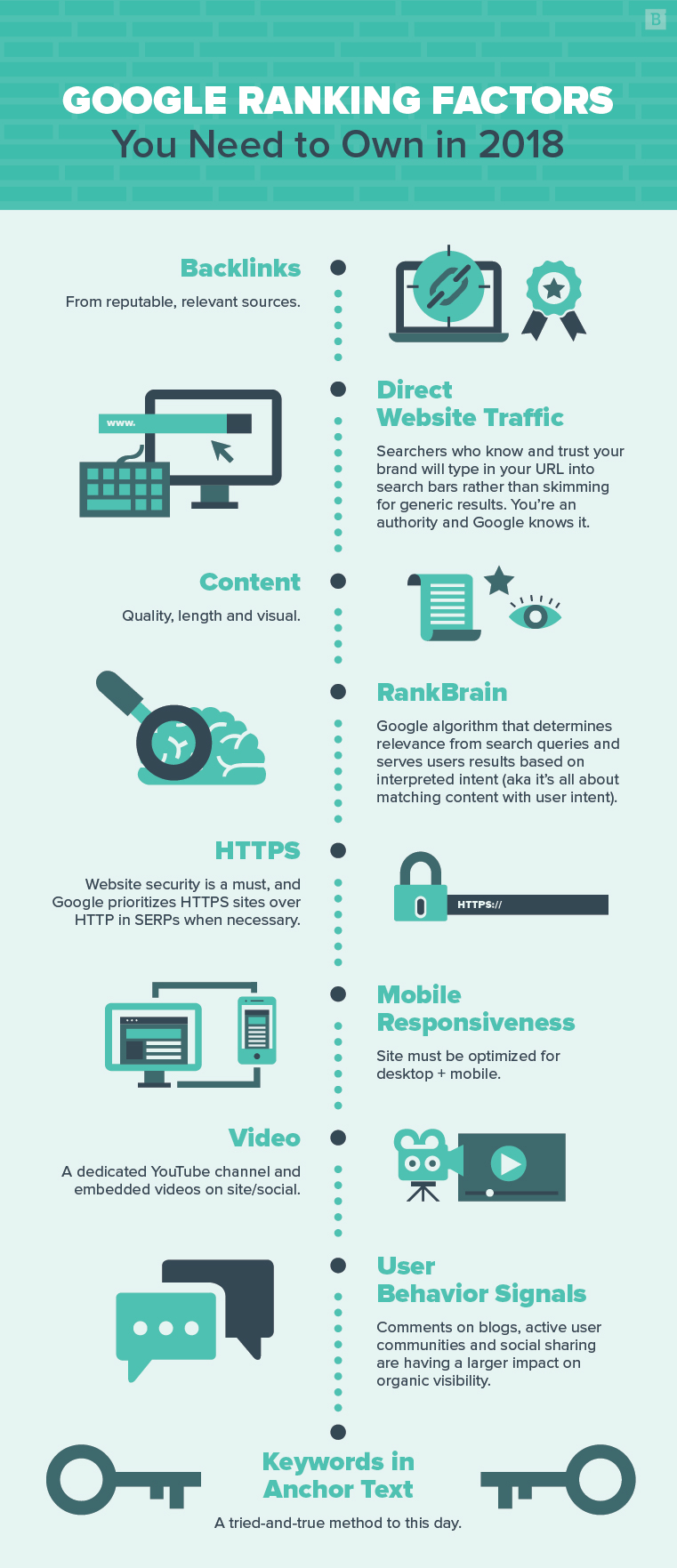
Free: Google Search Console is every webmaster’s dream platform, and it’s native to your site’s associated Gmail account. One of the primary benefits of Search Console is being able to quickly see what phrases you’re currently ranking for. This snapshot gives you vital information to show your boss while also serving as a foundation upon which to launch SEO campaigns that can improve those rankings.
Paid: SERPs is a rank-tracking software that costs $49-$99/month for dedicated plans, with higher costs for custom, enterprise-level services. The smallest option allows you to track up to 300 keywords daily across five sites. You can also assess local and global rankings for keywords and their associated search volume/cost-per-click.
Alternate: Both Moz and Searchmetrics provide some limited rank-checking functionality but offer more comprehensive SEO packages in total.
Website audit
Site audits are the backbone of technical SEO. A domain littered with errors, duplicate content, poor navigation and lackluster user experience will never rank well – period. While other tools equip you to produce excellent content, you cannot overlook the importance of backend sitemap structure and frontend usability. Website audits show you all your site’s flaws, allowing you to quickly correct them.
After all, search engines need to be able to properly index your webpages, which you can accomplish with site fixes post-audit.

Free: Screamingfrog will crawl up to 500 URLs for free, analyzing everything from links, errors, metadata and other basic sitemap features. If you need fast, on-site SEO analysis with a free, downloadable tool, Screamingfrog is the way to go.
Paid: Raven Tools is an online marketing platform that ranges from $99-$399/month. The cheapest version reviews up to 20 domains, crawls 400,000 pages and includes white label SEO reports, backlink research and competitor analyses, among other features. Raven’s website auditor shows all site issues but specifically highlights the ones most detrimental. That way, other stakeholders can clearly see what needs to be prioritized.
Raven Tools also pays for data from Moz and Majestic as part of its service, which means you gain insight from multiple tools all in one package.
Alternate: Searchmetrics has site audit optimization and domain comparison research functions.
Bonus: Google’s PageSpeed Insights shows you any lag time when your pages load, a crucial factor affecting organic rankings.
Double Bonus: Google’s Search Console gives you a comprehensive view of the broken pages on your site and the date the error was detected.
Winning at SEO in 2018
Organic ranking efforts can be time-consuming. Mostly because it requires a lot of research and a lot of optimization. But also because winning the SERPs game is a moving target – in a matter of hours, your coveted Position 1 ranking can be usurped by some backbencher from Page 5 that recently re-optimized a post specifically to outrank you.
Ranking algorithms place a premium on authentic, authoritative content that generates social signals and quality backlinks.
Or, your Position 1 spot may not matter all that much because Position 0 (knowledge graphs, info cards, rich snippets, etc.) and paid ads take up the majority of the above-the-fold SERP real estate. This form of SERP crowding can directly impact click-through rates and stymie your SEO programs.
Additionally, Google is now officially indexed mobile first, and ranking algorithms place a premium on authentic, authoritative content that generates social signals and quality backlinks. With that in mind, here are, in no order (Google is cagey about this), ranking factors you need to own in 2018:
- Backlinks: From reputable, relevant sources.
- Direct website traffic: Searchers who know and trust your brand will type your URL into search bars rather than skimming for generic results. You’re an authority and Google knows it.
- Content: Quality, length and visual.
- RankBrain: Google algorithm that determines relevance from search queries and serves users results based on interpreted intent (aka it’s all about matching content with user intent).
- HTTPS: Website security is a must, and Google prioritizes HTTPS sites over HTTP in SERPs when necessary.
- Mobile responsiveness: Site must be optimized for desktop + mobile.
- Video: A dedicated YouTube channel and embedded videos on site/social.
- User behavior signals: Comments on blogs, active user communities and social sharing are having a larger impact on organic visibility.
- Keywords in anchor text: A tried-and-true method to this day.
More than half of B2B marketers state SEO is their most effective lead generation tactic. And more money is flowing into SEO than ever.
But it’s not just about money, it’s about targeted work on specific organic opportunities, and if you conduct much of this work using free tools, all the better. Because free is free, and your boss loves free.






